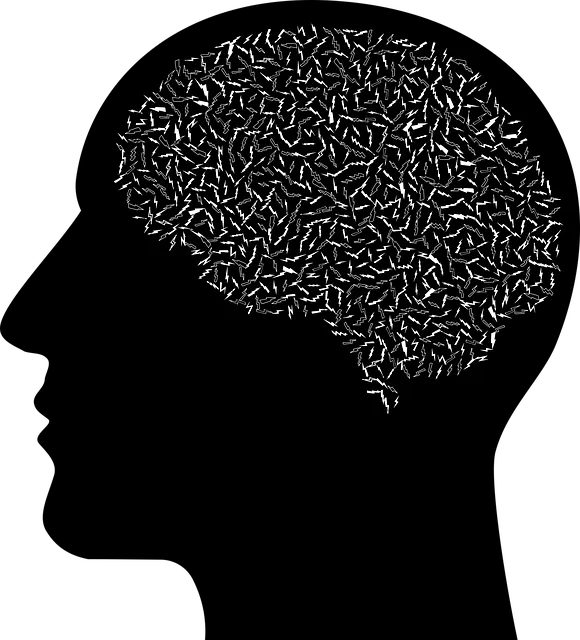Kaiser Permanente's training programs in Castle Rock introduce a holistic approach to resilience through the RFM model (Recovery, Flexibility, Mastery), empowering individuals with stress reduction and conflict resolution skills. These structured workshops combine mental wellness coaching, exercise routines, and personalized coaching to enhance emotional intelligence, well-being, and organizational productivity. Tailored to diverse demographics, exercises include mindfulness practices, gentle movement, creative outlets, and self-care routines, with measurement through pre/post assessments and feedback for sustained mental health benefits within the Castle Rock community.
In today’s fast-paced world, building resilience is more crucial than ever for maintaining mental well-being. This article explores the power of RFM (Resilience, Flexibility, and Mobility) exercises in fostering psychological resilience. We delve into Kaiser Permanente’s pioneering approach to training programs in Castle Rock, highlighting their effectiveness in enhancing overall well-being. Understanding the role of exercise in building resilience, we offer insights on designing tailored programs for diverse demographics and methods for measuring the impact of RFM training initiatives, all while emphasizing the benefits for individuals and communities alike.
- Understanding RFM: Resilience as a Foundation for Mental Well-being
- Kaiser Permanente's Approach to Training Programs in Castle Rock
- The Role of Exercise in Building Psychological Resilience
- Designing Effective Resilience Building Exercises for Different Demographics
- Measuring Success: Evaluating the Impact of RFM Training Programs
Understanding RFM: Resilience as a Foundation for Mental Well-being

Resilience is a cornerstone of mental well-being, and it’s here that Kaiser Permanente training programs in Castle Rock truly shine. The RFM (Recovery, Flexibility, and Mastery) model offers a holistic approach to building resilience, empowering individuals to navigate life’s challenges with strength and adaptability. By focusing on these core aspects, the program equips participants with effective stress reduction methods and conflict resolution techniques that are invaluable for both personal and professional contexts.
The RFM framework provides tools for cultivating mental flexibility, enabling folks to bounce back from setbacks and adapt to change more effectively. Through Kaiser Permanente’s structured training programs in Castle Rock, individuals learn to embrace challenges as opportunities for growth, fostering a resilient mindset that enhances overall well-being. This proactive approach not only benefits the individual but also has positive ripples within organizations, leading to improved productivity and satisfaction through effective stress management workshops.
Kaiser Permanente's Approach to Training Programs in Castle Rock

In Castle Rock, Kaiser Permanente has pioneered an innovative approach to training programs, emphasizing holistic well-being and resilience. Their comprehensive offerings extend beyond traditional medical training, delving into areas such as mental wellness coaching programs and conflict resolution techniques. By integrating these aspects, Kaiser Permanente fosters a supportive environment that nurtures both personal and professional growth.
The organization’s commitment to development is evident in their tailored programs designed to enhance positive thinking and emotional intelligence. Through interactive workshops and personalized coaching sessions, participants gain valuable tools to navigate challenges and build resilience. This multifaceted approach not only improves patient care but also enriches the lives of healthcare professionals, ensuring they thrive in their roles within the dynamic landscape of modern healthcare services.
The Role of Exercise in Building Psychological Resilience

Exercise plays a pivotal role in fostering psychological resilience, as backed by research and supported by organizations like Kaiser Permanente. Their training programs in Castle Rock emphasize the interconnectedness of physical and mental health, highlighting how regular activity can significantly enhance an individual’s ability to cope with stress and adversity. Through various exercises, whether it’s cardiovascular routines or mindfulness practices, individuals learn to build inner strength that translates into better resilience against challenges, including trauma and burnout prevention. This holistic approach not only empowers people to navigate life’s complexities but also fosters a sense of empowerment and self-care.
Incorporating resilient habits through exercise isn’t just about physical transformation; it’s about cultivating mental fortitude. Trauma Support Services often recommend these practices as part of their comprehensive programs aimed at helping individuals recover and rebuild. By engaging in regular physical activity, participants not only improve their overall well-being but also develop coping mechanisms that can be leveraged during challenging times. This proactive approach to inner strength development is crucial in fostering resilience, ensuring individuals are better equipped to handle the curveballs life may throw their way.
Designing Effective Resilience Building Exercises for Different Demographics

Designing effective resilience-building exercises requires tailoring them to diverse demographics, such as those in Castle Rock participating in Kaiser Permanente training programs. For instance, exercises aimed at adolescents might focus on stress management techniques and emotional regulation skills, while older adults may benefit from gentle movement practices like yoga or tai chi that enhance physical and mental well-being. Incorporating cultural relevance is also key; activities should resonate with participants’ backgrounds and experiences to foster genuine engagement.
Furthermore, integrating self-care routines development for better mental health into these exercises can significantly boost resilience. This might include encouraging mindful breathing practices, engaging in creative outlets, or establishing consistent sleep schedules. The Mental Wellness Podcast Series Production can also play a role by providing accessible audio resources that complement the exercises and offer additional insights into cultivating mental wellness.
Measuring Success: Evaluating the Impact of RFM Training Programs

Measuring success is a vital aspect of evaluating the effectiveness of Kaiser Permanente training programs focused on resilience and emotional regulation in Castle Rock. These initiatives aim to empower individuals with tools for stress management, specifically targeting employee well-being within the organization. By implementing structured exercises and workshops, such as those found in the Mental Wellness Podcast Series Production, the training programs seek to enhance mental wellness among participants.
The impact of these interventions can be assessed through various methods. Pre-and post-program assessments can gauge improvements in emotional regulation skills, stress management techniques, and overall resilience. Feedback from participants is also invaluable, providing insights into their experiences and perceived benefits. Additionally, long-term follow-ups can reveal the longevity of learned coping strategies, ensuring that the programs not only provide short-term relief but also contribute to sustained mental wellness within the Castle Rock community.
Resilience is a powerful tool for enhancing mental well-being, and Kaiser Permanente’s innovative training programs in Castle Rock exemplify this. By combining understanding of the RFM (Resilience, Flexibility, and Mental Fortitude) model with tailored exercise routines, these programs offer a comprehensive approach to building resilience across diverse demographics. Through rigorous evaluation, it’s evident that these initiatives are making a significant impact, demonstrating the potential for improved mental health outcomes in communities worldwide. Kaiser Permanente’s leadership in this area underscores the transformative power of resilience-focused training.






